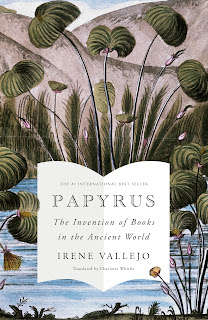Title: Knowing What We Know
Publisher: 3rd May 2023 by HarperCollins Australia
Pages: 380 pages
Genre: Non Fiction (Adult) | History |
Rating: 4 cups
Synopsis:
From the creation of the first encyclopedia to Wikipedia, from ancient museums to modern kindergarten classes—here is award-winning writer Simon Winchester’s brilliant and all-encompassing look at how humans acquire, retain, and pass on information and data, and how technology continues to change our lives and our minds.
With the advent of the internet, any topic we want to know about is instantly available with the touch of a smartphone button. With so much knowledge at our fingertips, what is there left for our brains to do? At a time when we seem to be stripping all value from the idea of knowing things – no need for maths, no need for map reading, no need for memorisation – are we risking our ability to think? As we empty our minds, will we one day be incapable of thoughtfulness?
Addressing these questions, Simon Winchester explores how humans have attained, stored and disseminated knowledge. Examining such disciplines as education, journalism, encyclopedia creation, museum curation, photography and broadcasting, he looks at a whole range of knowledge diffusion – from the cuneiform writings of Babylon to the machine-made genius of artificial intelligence, by way of Gutenberg, Google and Wikipedia to the huge Victorian assemblage of the Mundaneum, the collection of everything ever known, currently stored in a damp basement in northern Belgium.
Studded with strange and fascinating details, Knowing What We Know is a deep dive into learning and the human mind. Throughout this fascinating tour, Winchester forces us to ponder what rational humans are becoming. What good is all this knowledge if it leads to lack of thought? What is information without wisdom? Does René Descartes’ ‘Cogito, ergo sum’—'I think, therefore I am’, the foundation for human knowledge widely accepted since the Enlightenment—still hold?
And what will the world be like if no one in it is wise?
My Thoughts
‘What is the likely effect on society of making the acquisition of knowledge generally, so very easy, such that there may well be, eventually, no absolute need to know or retain - retain being the operative word - the knowledge of anything?’
What exactly is the value of knowledge when we live in a society where anything and everything is so easily attained? Does that change its value to society? Think about it ….. with no pressing need to remember things, will this have a long term impact on both our intelligence and thoughtfulness? Our reliance on modern technology - everything from Google, to Maps to phone numbers - has taken away what was previously much of our innate learning and capabilities. When I began to truly consider this, I found this book both informed and raised many valid questions.
Winchester outlines a lot of research - everything from our surrounding our collective knowledge. From the beginning with civilization's earliest writing on clay tablets to the Internet, and now AI (just think ChatGPT). His writing is informative and entertaining as he brings both his holistic and intimate knowledge to this topic. From small known occurrences or ordinary people to the bigger to bigger events such as the atomic bomb that ended WWII.
Whilst there was much to wade through and consider, the concluding page deemed to throw everything preceding into disarray - hmmmm …. interesting. Do machines diminish our capacity for thought or might the opposite be true? That, in fact, machines might free our mind from the mundane for a higher purpose. I wish more had been dedicated to this line of thinking rather than as an afterthought on the final page.
Winchester asks readers, “Does an existential intellectual crisis loom?” If machines are taking over more roles and what does that leave the role of humans? In this book Winchester undertakes a thorough investigation of knowledge over history. Everything from its creation to how it has been organised, stored and used. This in depth study looks at how we learn, who we learned from and what we are in danger of losing.
‘What can and may and will happen next to our mental development if and when we have no further need to know, perhaps no need to think? What if we are then unable to gain true knowledge, enlightenment, or insight-that most precious of human commodities, true wisdom? What then will become of us?’
This review is based on a complimentary copy from the publisher in exchange for an honest review. Opinions expressed in this review are completely my own. The quoted material may have changed in the final release.












